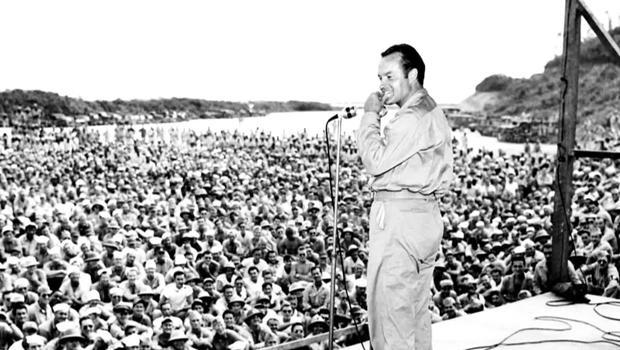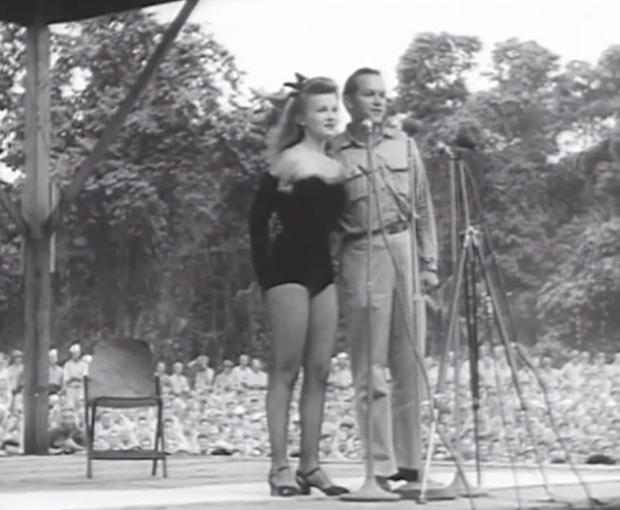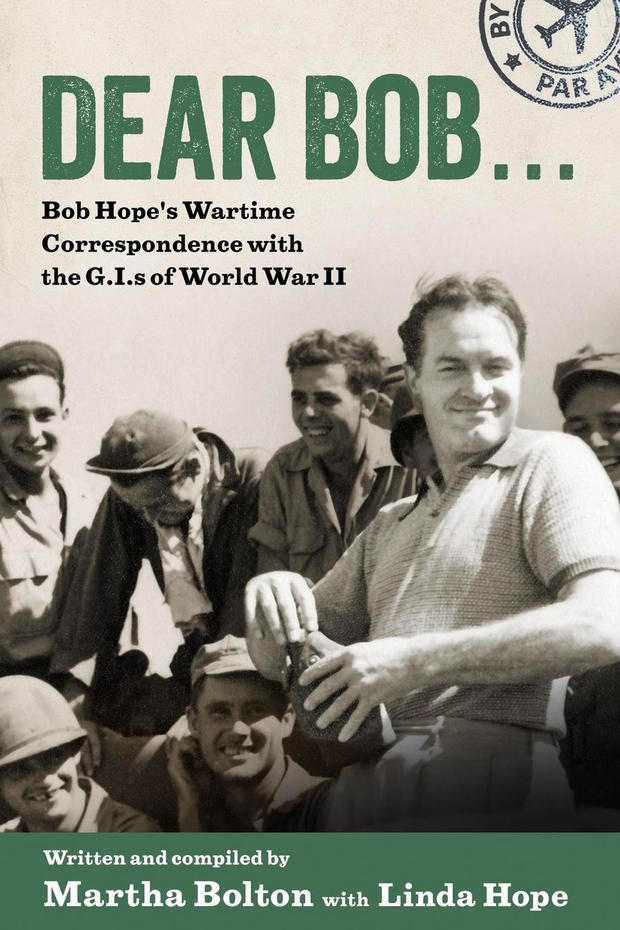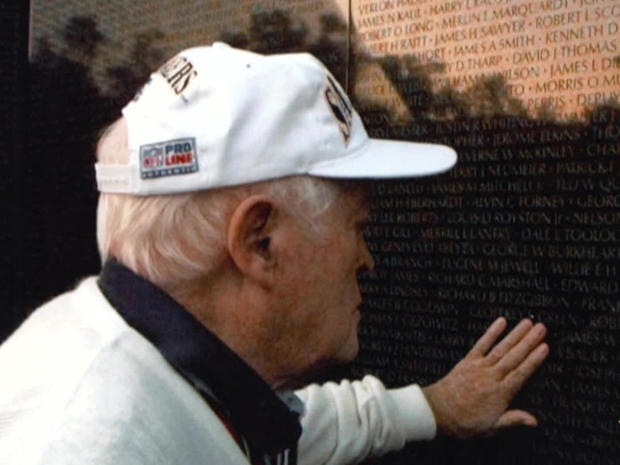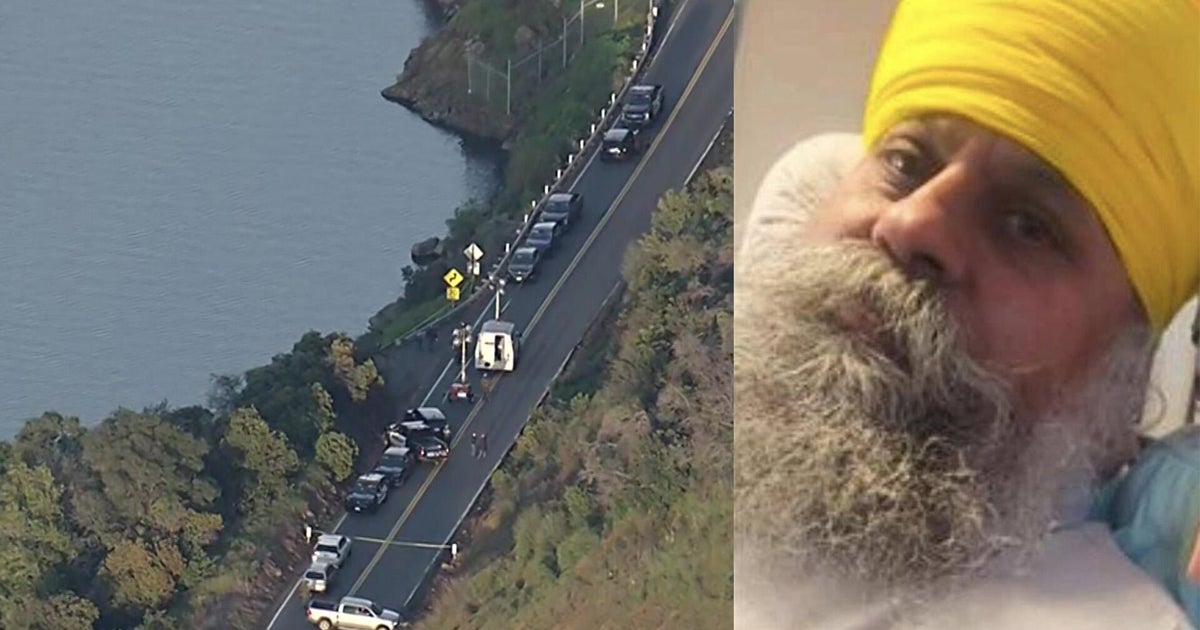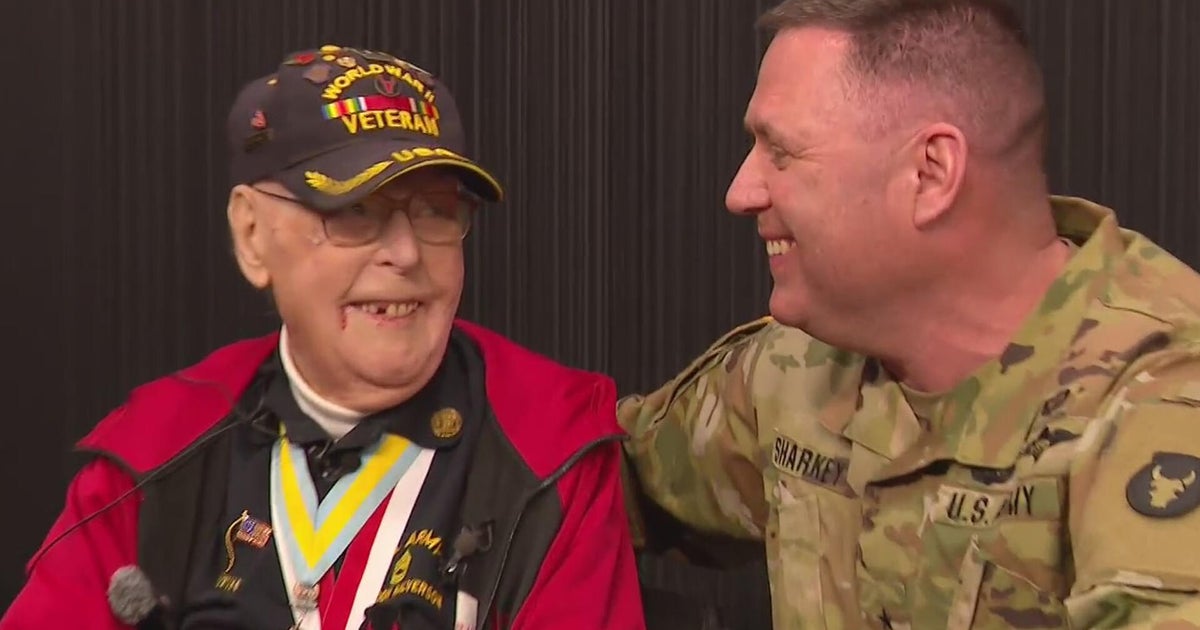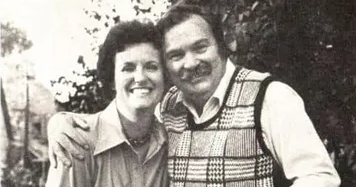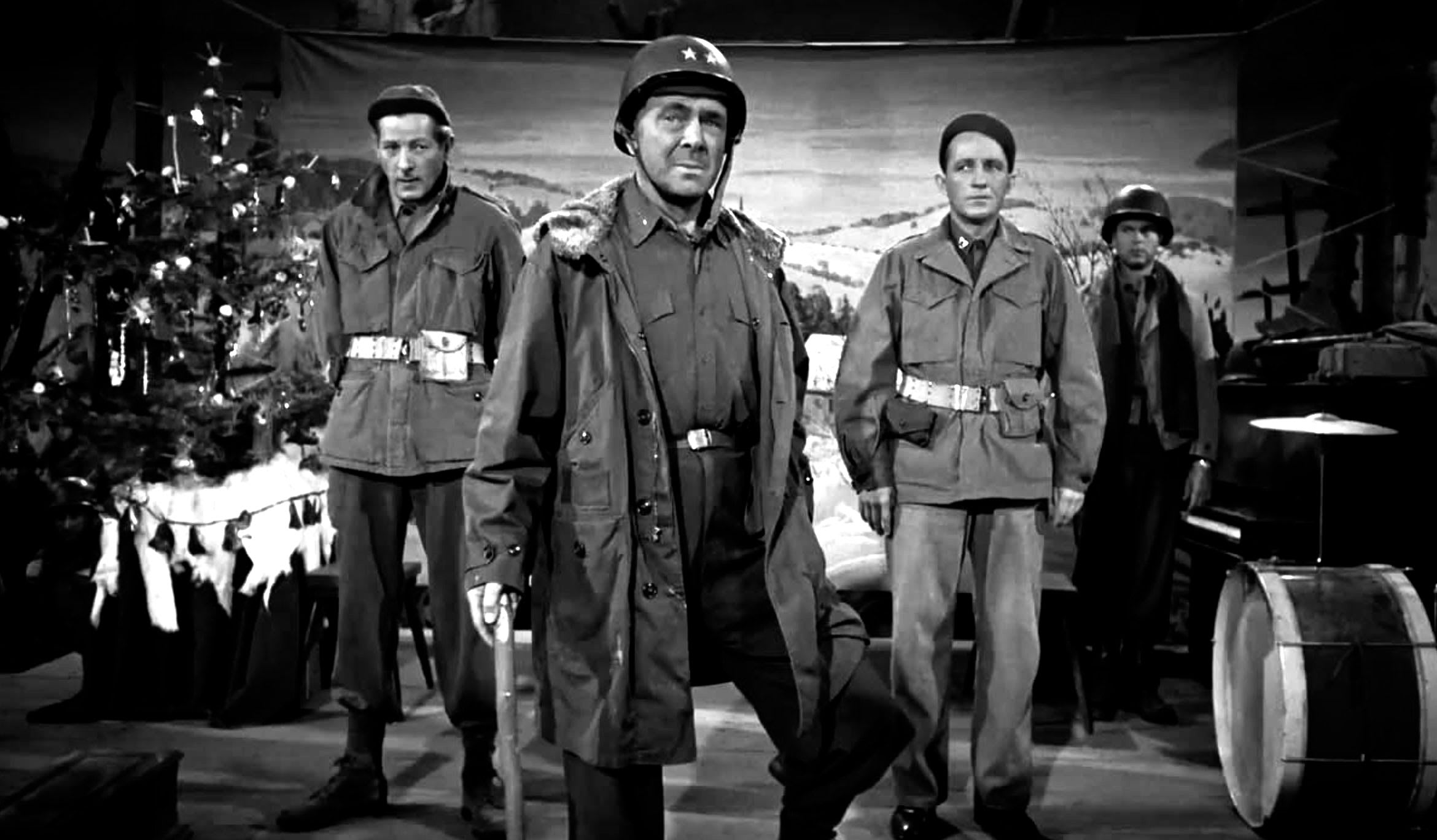"Dear Bob": Bob Hope's correspondence with GIs at war
In the 1940s, Bob Hope was already one of America's brightest stars. But to Linda Hope, he was just "Dad." So, what was it like to have Bob Hope as a dad? "Well, pretty spectacular, I have to say," she said. "It was never dull! But he was always on the go. I mean, that's what I remember most of all."
Indeed he was. At the time, Hope had a hit "Road" movie series with his old pal Bing Crosby, a top-rated radio program, and a packed personal appearance schedule.
So, in May of 1941, when he was asked to do a USO show at a military base near Los Angeles, he balked, at first, but then went on to do what might've been the show of his life.
The troops went wild, and Hope saw the need for laughter in the ranks. So, when the U.S. entered the war after Pearl Harbor, he said goodbye to his wife and their two children, and headed out into harm's way.
"Hello, fellow tourists, how are you?"
Correspondent Tracy Smith asked Linda, "You were a little girl during World War II – what do you remember about his going away? What did he tell you when he'd leave to go on these USO tours?"
"Oh, I remember it pretty well, because I was around four or five; I was born in 1939. It was, you know, disconcerting, 'cause Dad was a really fun guy. And he was more like a friend, a playmate, than he was a dad. My mother got the job of being the disciplinarian and the one to teach table manners. That wasn't his thing."
His thing, we now know, became a mission to do shows near the frontlines, often along with singer Frances Langford and comedian Jerry Colonna.
For the rank-and-file, a Bob Hope show was a glimpse of the world they'd left behind – and one many of them would never see again.
Bob became a buddy, a pal they could write to … and write they did; in 1944 alone, Bob Hope got an estimated 38,000 letters a week.
"They'd tell him everything," said Martha Bolton, who once wrote jokes for Hope. "Things that they wouldn't tell other people, they would tell Bob, 'cause he was their connection to home, he was their counselor, he was their friend, he was their dad. And they meant the world to him."
Bolton has compiled some of his World War II correspondence into a book, "Dear Bob."
Smith asked, "What kind of things would they share with him that they wouldn't tell other people?"
"I think the seriousness of the battles that they were in, that they may not share with their family, but they would talk with Bob about it,' Bolton said.
They'd also ask him to call home for them, and once he got back to the States, he'd actually do it.
And maybe even more astonishing, he'd personally answer as many of the GIs' letters as he could.
Linda Hope said, "He would sit down and actually dictate to his secretary, whose name was Marjorie Hughes, I'll never forget it. But I don't know how he was able to manage everything."
Smith asked, "Did you see the other side to that when he'd come home? Could you tell – 'cause it must have affected him emotionally."
"He didn't really refer to it," she replied. "In fact, a lot of these boxes with the letters in them, he didn't wanna read again."
"Why do you think that was?"
"I think it might just have been a fear of unleashing a lot of stuff that he had just sort of held in and repressed and, you know, put aside so that he could do what he felt he needed to do," Linda said.
Of course, for all of his travel overseas, Bob Hope never really took a break from his work back home.
During and after the war, he joked and danced his way through movies, and hosted the Oscars a record 19 times. He even found time to be the mystery guest alongside his daughter Linda on the popular game show "What's My Line?"
The USO shows didn't stop, either: he toured from Korea to Vietnam and beyond, often coming under enemy fire himself.
"Happy to be here at Ton Son Nhut, Southeast Asia's biggest rocket base – mostly incoming," he quipped.
Bob Hope lived to be 100, but daughter Linda says that late in his life, her dad started to come to grips with what he'd seen, and all the people he met who never came home.
"He went to the Vietnam Memorial, and to see him there, it still affects me," she said. "You know, as an old man and having his hand on the wall and knowing that those were guys, a lot of whom he entertained. I think he began to deal with some of this when he had time to sit and reflect, and I think it touched him."
Before he died in 2003, Congress officially made Bob Hope an honorary veteran. Thousands of his letters were sent to the Library of Congress – a tribute to a war hero whose only weapons were one-liners and an enormous heart.
Smith asked Linda, "What do you hope that these letters reveal about your dad?"
"Really, his humanity,' she replied. "He wasn't a real warm, fuzzy guy, but you see underneath what's there. And it's real. And it's, guess you could call it love. I think it is."
For more info:
- "Dear Bob... : Bob Hope's Wartime Correspondence with the GIs of World War II" by Martha Bolton with Linda Hope (University Press of Mississippi), in Hardcover and eBook formats, available via Amazon and Indiebound
- Bob & Dolores Hope Foundation
Story produced by John D'Amelio. Editor: Joe Frandino.
See also:
- Bob Hope: Thanks for the memories ("48 Hours")
- A tribute to Bob Hope: U.S.O. Tour ("48 Hours")
